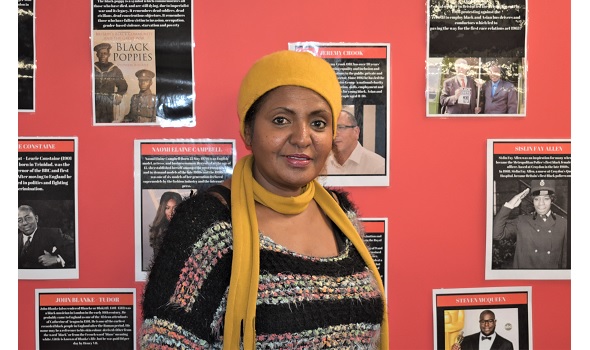Inspired by Nelson Mandela: Feven’s story
Inspired by Nelson Mandela: Feven’s story

Feven was 16 when she first arrived in the UK as a refugee.
“It was hard,” she says. “I felt alone, away from my family, all the long way from my country. You have to cross country, country, country, I was crying.”
She had travelled from Eritrea and arrived in the UK in 1993 with several other Eritreans known to her family. Feven was joining her older brother and older sister who had already settled in the UK. She spent much of her time at first with the Eritrean community in London, which helped her to settle in her new home. She soon became more and more involved and active in the group.
Within just a few years Feven founded a charity that has progressively expanded its activity and now helps many Eritreans and other African people in the UK and abroad.
“At the beginning I was receiving help from the community,” says Feven. “Then I became more active helping others. I was active 25 hours a day, denouncing persecution and suffering of people in Eritrea and helping refugees in the UK and in campuses abroad. For four years I was going up and down to Ethiopia with my children to help people in camps there.”
In 2004 Feven established the Eritrean Community Support Information Centre that later became the African Women Empowerment & Information Centre.
A passionate woman with a strong social commitment, Feven has promoted several petitions against the violation of human rights in Eritrea, where people are forced into indefinite military service, subjected to horrific abuses and where the government uses murder, persecution, imprisonment, rape and torture to control and instil fear in the civilian population. The situation has led hundreds of thousands to flee the country and seek asylum in other areas including Europe. Eritrea is one of the most common countries of origin for people seeking asylum in the UK, and has one of the highest success rates. In 2017, 80% of Eritrean asylum seekers were successful.
Over time, Feven and her colleagues from the charity have helped many Eritreans living in refugee camps in Ethiopia, Sudan and the French port of Calais.
“We offer them initial information and practical support,” says Feven. “We help them to meet their families and provide them with food, clothes, shoes, tents, sleeping bags, etc. We did this for three years in Calais.”
The charity initially only worked with Eritreans, before extending its activity to other Africans with a particular focus on women. This is emphasised in the African Women Empowerment & Information Centre website where all the pages have a subtitle quoting Nelson Mandela speaking about the importance of female emancipation: “Freedom cannot be achieved unless women have been emancipated from all forms of oppression,” and “Our endeavours must be about the liberation of the woman, the emancipation of the man and the liberty of the child.”
“We do a lot of activities with women, including training, events and regular meetings,” explains Feven. “We help them to improve their education and get access to work.
“I want them to become more confident in themselves. Every two weeks we have a meeting with groups of women on different topics and discuss how they can develop by themselves. We also celebrate our cultures, as we have very rich cultures.”
The African Women Empowerment & Information Centre has a small team but more than 200 people participate in their initiatives.
The charity recently started to work with several other African groups (including Sudanese, East Africans and Ethiopians) and the Refugee Council, particularly to help meet the particular needs of young people.
“We want to face new challenges and to do more to help people, especially women and young people, to improve their quality of life,” says Feven. “Every group has issues and if we work together we’ll get better results.”
Photo: Feven, by Migrant Voice


